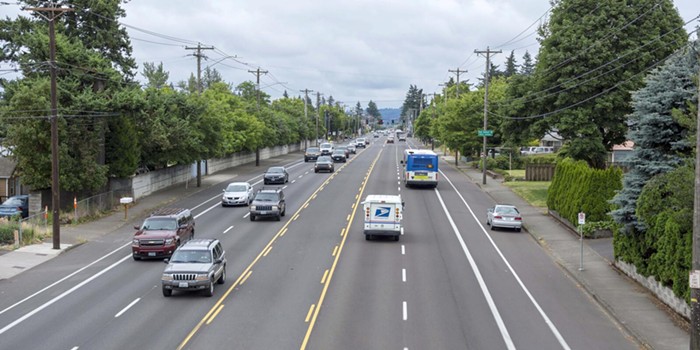THEY'RE BAAA-AAACK. After fine-tuning them in city hall's darkest, most secret places for the past three months, Mayor Sam Adams finally thrust his gun-control initiatives back into the light of public scrutiny last week.
You might remember them. Among Adams' most controversial ideas: a new curfew for kids convicted of gun crimes, "exclusions" for gun criminals from parts of the city plagued by shootings, and penalties for gun owners who fail to report any lost or stolen weapons.
But so far, the glare on the newly detailed proposals has been a little harsh.
Among the first stops on Adams' publicity tour? A closed-door meeting Friday, November 5, with the Albina Ministerial Alliance Coalition for Justice and Police Reform. It didn't go as well as Adams might have hoped.
Back in August, when Adams first unveiled his plans after a surge in gang violence, members of the group worried they would amount to another tool for cops to engage in racial profiling. They remembered the city's experiments with drug- and prostitution-free zones.
Speaking to me after Friday's meeting, some said they remain unconvinced.
"What's stopping them?" asked Jo Ann Bowman, a former state legislator, of police officers tasked with enforcing any curfew or gun-zone bans.
Those concerns were one reason why Adams' staff spent the past weeks consulting with national and local law enforcement experts, hoping to spray-coat his plans with what he hoped was a measure of political Teflon.
And, as you might expect, Adams is a bit sensitive about criticism. Especially when it comes to racial profiling—and whether his proposals might be helping to enable it.
"I'm going to make sure they don't," he told me.
He says the new restrictions, unlike previous exclusion zones, will focus only on gun convictions, not on general arrests and citations. He also said an oversight committee will produce a report every two months—including racial data. (I asked whether the data and reports will be public. "Absolutely," Adams replied.)
Further, he suggested, the gun laws are meant to complement community efforts attacking the roots of gun violence, including a new city hotline for kids looking to leave gang life behind.
That all sounds good—but Bowman may have a point. No matter what an ordinance says when it's read in city council, what counts is how it's read on the streets.
After all, she says, "We know how the cops operate."


















